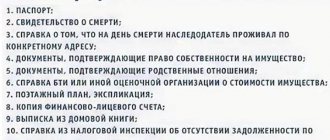At the legislative level, there is no article that provides for the voluntary renunciation of the right to care for and raise one’s own child. Instead, consent is issued for the child to be adopted by another person. However, it is not necessary to indicate a specific person. Consent will need to be certified by a notary. Be that as it may, the case is considered in court in the presence of the prosecutor and guardianship authorities (Article 70, paragraph 2 of the RF IC). A waiver of parental rights can be issued until the child turns 18 years old. The algorithm of actions is as follows:
- Complete an application with a notary.
- Notify the guardianship authorities.
- The guardianship authorities file a lawsuit against the father (mother) of the child and put forward a demand to deprive the rights of the father (mother) of the child.
- The court will determine the date of the hearing and consider the case.
- After making a decision, the court sends the act within 3 days to the registry office at the place where the child’s birth was registered to make adjustments to the documents (Article 70, paragraph 5 of the RF IC).
Abandonment of a child in divorce
Divorce in the presence of common children occurs judicially through a district court, in accordance with Articles 21-23 of the RF IC. The period for consideration of the case depends on the consent of the spouses. If one of the parties is against it, the case may drag on for up to three months; with the consent of both spouses, the divorce occurs no sooner than one month from the date of filing the application.
According to Article 24 of the RF IC, in divorce proceedings the fate of children is decided by the court. In case of abandonment of the child, a statement of abandonment is attached to the case. The objector needs to fill out an application for voluntary renunciation of parental rights with a notary and, before the trial, send it to the registry office, guardianship and trusteeship authorities, and they will send it to the court. The claim for divorce is filed separately.
Consequences of deprivation of parental rights and consent to adoption
Regardless of the method in which the relationship is terminated, the consequences for those involved will be as follows:
- impossibility of receiving an inheritance in the event of the death of children (the child remains the heir of the first priority until he is adopted by another man);
- loss of the right to state benefits and benefits (mothers of children are guaranteed recalculation of social benefits);
- prohibition on communicating with children and participating in their upbringing;
- inability to influence the future place of residence of your child.
As noted above, forced deprivation or restriction of parental rights provides for the possibility of establishing a legal connection between the father and the children. But voluntary renunciation of paternity does not provide such an opportunity. This decision is valid indefinitely.
If you abandon your child, do you have to pay child support?
Relinquishment of parental rights does not relieve the parent from financial responsibility (Article 74, paragraph 2 of the RF IC). The amount of alimony is determined in accordance with Article 81 of the RF IC. This is 25% of income for one child, 30% for two children and 50% for three children. The amount of alimony can be reduced or increased taking into account the financial status and other circumstances.
Exemption from payment occurs in accordance with Article 120 of the RF IC. If the child is adopted by another person, the responsibility for providing for it rests with him.
Responsibilities of a foster father
If the child’s mother and a man who is not the adult’s natural father have registered a marriage union, then it can be included in the child’s documents.
If the mother’s new spouse, according to documents, is the child’s official father, then he is responsible for the financial support of the minor, including alimony payments.
In cases where the adoptive father is forced to pay child support but does not want to do so, he must initiate legal proceedings to challenge paternity. This will require a genetic examination or the preparation of evidence that the woman misled him about paternity.
What documents are needed to renounce paternity?
Documents are prepared in the amount of one copy for each participant in the process. List of required documents:
- child's birth certificate;
- certificate of paternity (if available);
- certificates from the place of residence of the father, child, mother;
- a receipt for payment of the state duty (Article 333.19 of the Tax Code of the Russian Federation);
- 2-NDFL from the place of work;
- documents related to the current case (court orders, character references, health certificates, etc.);
- certificate of divorce;
- court order for alimony.
Termination of an agreement to pay alimony
Financial support for a child may be withheld voluntarily. To do this, the parents of the minor enter into an agreement to pay financial support.
The document contains the payment procedure, the amount of payments, and the conditions for terminating the agreement. Among them:
- adults;
- emancipation;
- adoption.
If one of the parties refuses to fulfill the terms of the agreement, the law does not provide for the need for its termination. The second party has the right to demand forced execution of the conditions through the FSSP. The agreement is given the force of a writ of execution.
If there are no reasons for stopping payments, the person has the right to change the amount of payment. If there is no agreement between the parties on the terms of the change, the citizen must go to court.
Important! The agreement to pay child support cannot be terminated by agreement of the parties.
An additional option for terminating the agreement is to declare it invalid. The recipient of funds can challenge the document if the payment does not meet the minimum amount required by law. In accordance with the Family Code, the amount of payment under the agreement cannot be less than what the court would assign (1/4 share of all types of income of the alimony provider).
In addition to the recipient of funds, the prosecutor and the district guardianship authority can apply to the court to invalidate the agreement.
Application for abandonment of a child by the father - where to submit
Such cases are dealt with by the district court at the place of residence of the plaintiff or defendant. One of the parents or guardianship submits to the court on the basis of an application.
The application is an important document that reflects basic information about the refuser, the child, the reasons for the refusal and, of course, consent to future adoption. The notary must certify this application with his signature. The objector has the right not to appear at the meeting; in this case, this desire must be reflected in the application.
It is acceptable to draw up a statement in free form, but it must reflect:
- the name of the court to which the claim is filed;
- data from guardianship and trusteeship authorities;
- information about the objector and the second parent (full information on the passport);
- child’s details (full information from the birth certificate);
- the reasons that led to the abandonment of the child;
- consent to adoption;
- agreement that this decision is not subject to challenge;
- request to consider the case without personal presence;
- agreement with the consequences of the decision;
- signature of the refusenik indicating the date.
If a father (mother) wants to abandon several children, then an application for each child is drawn up separately.
Arbitrage practice
The case was considered by the Olekminsky District Court of the Republic of Yakutia in July 2021.
The father filed a lawsuit with the district court against the child’s mother, in which he challenged the paternity record entered by the state civil registry office into the birth certificate. In March 2021, at the request of the father, the court initiated a genetic examination and suspended the proceedings for 3 months until the results were received.
According to the examination, the plaintiff was recognized as the father with a probability of 99.99%. However, the plaintiff did not agree with the expert’s conclusions and stated that during the period of the baby’s conception, his mother regularly drank alcohol with other men and cheated on the plaintiff, therefore the expert’s conclusions are false. However, the judge did not heed the plaintiff’s arguments for the following reasons:
- The examination was carried out by an organization licensed for this study.
- The analysis technique is recognized by law as acceptable.
- The experts provided a reasoned explanation for all stages of sample analysis.
- The defendant did not want to challenge the results obtained.
As a result, the court came to the firm conviction that the plaintiff is the real father of the baby, which means his claims should be rejected.
Consequences of father abandoning a child
According to Article 71 of the RF IC, a parent who abandons a child loses all rights. Also, he cannot claim in the future for maintenance from him, he cannot claim benefits and allowances due to his parents. When a parent abandons a child, he or she loses the right of inheritance, and the child continues to be classified as an heir of the first category. An application for relinquishment of parental rights is written with an agreement to adopt the child in the future, and in the event of his adoption, restoration of paternity is impossible. In other cases, if the parent decides to restore his rights, the procedure takes place in court with the participation of the guardianship authorities. When the child reaches 10 years of age and only with his consent.
R.TIGER specialists will help you draw up an application, contact a lawyer right now.
- Assistance from lawyers regarding guardianship issues
Regulatory framework
| Laws (names) | List of articles |
| Tax Code (Part 2) | Article 333.24 – fees charged by a notary. Article 333.36 – benefits established by the state for the payment of court fees. Article 333.39 – benefits established by the state for the payment of fees for registration actions of the civil registry office. |
| Family code | Article 51 – the procedure for entering information about the baby’s father into the registration book. Article 52 – persons who have the right to challenge the fact of paternity, and circumstances preventing the challenge. Article 69 – reasons for depriving a father of his parental rights. Article 71 – the obligation of a father deprived of parental rights to provide maintenance support to his minor child. Article 80 is the obligation of every parent to financially support their children who are not yet eighteen years old. Article 125 – the procedure for the adoption of minors. Article 127 – list of persons who do not have the right to adoption. Article 129 – mandatory consent of the child’s father to his adoption by another man. Article 132 is the age at which a minor must be asked for permission to adopt. Article 137 is the consequences arising from adoption. |
| Civil Procedure Code | Chapter 28 – features of the proceedings on paternity issues. Chapter 29 – features of the proceedings of cases relating to the adoption of children. Article 131 – information that must be reflected in the claim document. |
| Resolution of the Plenum of the Supreme Court of Russia “On the practice of application by courts of legislation when resolving disputes related to the protection of the rights and legitimate interests of a child in the event of an immediate threat to his life or health, as well as in the case of restriction or deprivation of parental rights” dated November 14, 2017 No. 44 | Point 16 – clarification of the meaning of Article 69 of the Family Code, which specifies the grounds for depriving a parent of his rights in relation to children. |
Summary
Unfortunately, the question, terrible in sound and meaning, of how to abandon a child to a father, is still relevant in our society. It is impossible to renounce paternal functions only at the request of a man: a minor cannot be left without support.
Renunciation of the title of father of one's own free will can mean only one thing - this is a forced deprivation of parental rights, with a number of negative consequences. And, the consequences are as follows: preservation of the child’s inheritance rights, the obligation to pay him alimony, deprivation of state benefits and the possibility of assistance in the future from the minor.
Legislative norms
The procedure for terminating paternity is clearly regulated by the norms of family, civil, civil procedural and tax legislation, as well as the provisions of federal laws:
- Art. 69-71 RF IC;
- Art. 131, paragraph 4, paragraph 1, art. 23, Art. 24 Code of Civil Procedure of the Russian Federation;
- Federal Law No. 143, approved on November 15, 1997;
- Art. 26 of the Tax Code of the Russian Federation.
The above provisions do not establish the right to voluntarily renounce paternity, however, in the process of building a strategy for the court, these rules should be guided.
Who cannot challenge paternity
The Family Code does not allow paternity to be challenged by a man who voluntarily recognized himself as the father, at that time clearly knowing that there is no blood relationship with the newborn. The situation is similar with artificial insemination: when filing a claim, you cannot plead ignorance.
What to do in such a situation? Practice shows that you need to voluntarily negotiate with the mother or, in extreme cases, with the child’s biological father. They still have the right to file a lawsuit to challenge paternity.
Algorithm of actions when challenging paternity
To challenge paternity and make changes to the civil registry, you need to:
- Prepare a statement of claim for the court and collect evidence. The evidence base is the responsibility of the plaintiff, because a claim without grounds will be immediately rejected by the court or left without progress.
- Submit documents to the court, wait for confirmation that the claim will be accepted for proceedings.
- Come to court.
- If the defendant agrees with the claim voluntarily, the demands are satisfied without examining the evidence base and ordering a genetic examination. The decision is made automatically at the first meeting.
- Receive a court decision after it comes into force (within 30 days).
Why men refuse to be a parent
There are many reasons why a father wants to renounce his rights to a child. Among the respectful standards, the following are distinguished:
- Transfer of rights to another person. This is if someone else wants to adopt the child and raise him. The most common cases when this happens is if a woman gets married again. Then the stepfather will have all the rights of a parent.
- The man is not the biological father. For example, a man may find out about his wife’s infidelity, or he may doubt his relationship with his child due to the lack of similarities between them.
- The citizen evades responsibility and does not support the child, does not take any part in his upbringing for a long time.
- The man has an alcohol or drug addiction. Often because of this, he displays an aggressive and rude attitude towards the child. In addition, even the services of an experienced drug lawyer will not save him from going to prison if there is a criminal offense related to possession or distribution.
- The father has a severe mental disorder or illness. As a result, sometimes it is simply dangerous for a child to be around such a person.








